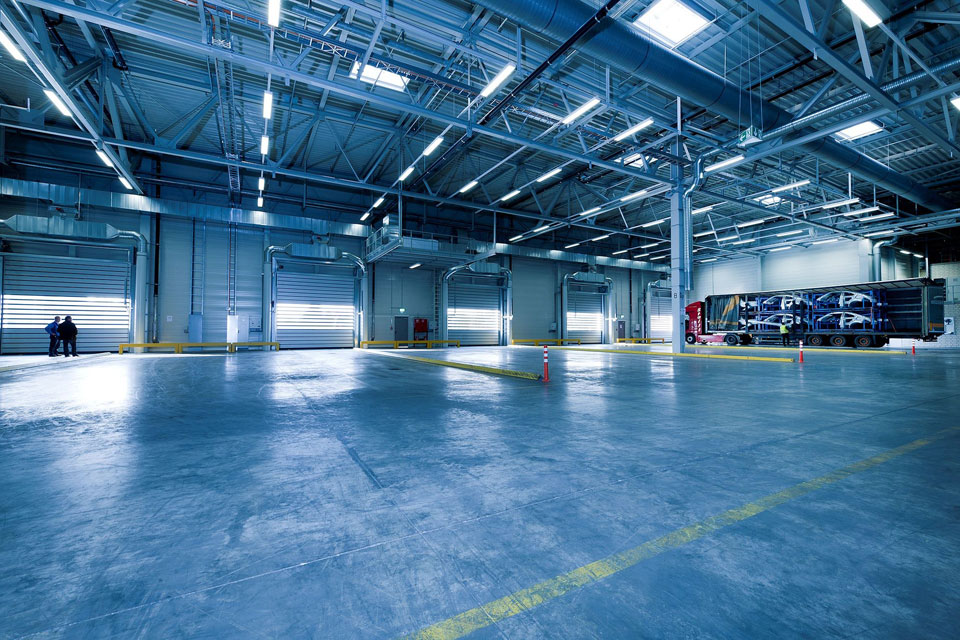A warehouse leasing agreement is a contract signed by two parties for the lease of a warehouse.

A warehouse leasing agreement is a contract signed by two parties for the lease of a warehouse. Understanding the clauses of a warehouse space leasing agreement is critical if you want to know your rights and obligations and defend your interests.
Table of Contents
Tips for Warehouse Leasing
Contrast Cubic Footage with Square Footage
When leasing warehouse space, you should pay special attention to the building’s cubic volume and square footage. Cubic footage denotes the overall volume of the warehouse area based on the structure’s ceiling height, breadth, and length. It is important to note that more cubic feet does not necessarily equate to additional room.
For example, suppose you wish to lease a warehouse with a large quantity of cubic feet and high ceilings, but the breadth and length are limited. It is probable that you will be unable to organise your inventory vertically, making the area less effective in comparison to another building with lower ceilings but longer and broader proportions.
Climate Control and Safety Measures should be evaluated.
If your inventory is perishable or needs a regulated atmosphere, you may require a working temperature control system in a warehouse. Ascertain that the warehouse’s heating and cooling system meets your unique requirements.
In addition, evaluate the performance of the warehouse’s safety and security procedures. Is there a working alarm system and security cameras at the warehouse? Is there current fire suppression equipment on the premises?
Examine the Wiring
Warehouses often feature unique wiring that differs from that found in homes and offices. Check again to ensure that the installation is accurate and compatible with any machines that will be used in the area. Before signing the lease, it is best to have an electrical expert inspect the wiring to ensure that nothing is out of order.
Transportation
If your activities will need heavy-duty trucks coming up to your warehouse, ensure that the loading docks can accept articulated trailers. Additionally, ensure that there is enough parking space on-site or nearby for employees if this is required.
Understand the Lease Terms and Conditions
Before signing, it is critical to thoroughly grasp the lease’s terms. Make sure you understand your obligations and responsibilities in terms of rent, as well as other fees and charges.
Aspects of a Lease/Negotiation Points
Most of the items in a lease agreement would have been carefully explored during discussions prior to signing. During the letter of intent (LOI) procedure, the brokers for both sides will discuss and negotiate each component of the lease. They will only produce a formal lease agreement if both parties agree on the conditions.
Term of Lease
The lease period is an important component of the leasing process, and the notion is straightforward. All commercial leasing agreements include a certain number of months for which you are required to pay for the usage of the premises. As a result, since the agreement will be legally binding on you, you must be clear about how long you intend to lease the space.
Leases: Short Term vs. Long Term
Lease terms are classified into two types:
Lease for a limited time.
Lease for a long time.
The sort of lease term you choose is determined by the nature of your company and the structure of your expenses. Short-term leases are more adaptable since they do not need long-term commitments. These lease lengths enable a tenant to move premises more often than a long-term contract would allow.
Short-term leases, on the other hand, make it difficult to budget for future rental payments. The reason for this is because a tenant must renegotiate the lease conditions, which may result in rent increases. Short leases often provide fewer concessions, such as free rent and tenant improvement money, since the landlord wants to recoup costs within the term of the contract.
Long-term leases, on the other hand, guarantee that the tenant pays a reduced rental cost for a longer period of time. Landlords will also make greater concessions for lengthier leases since a trustworthy, long-term renter is in their best interests. A long-term lease, on the other hand, limits a tenant’s flexibility to move spaces on short notice. The best period for you will be determined by the circumstances of your firm.
Copy and paste this <iframe> into your site. It renders a lightweight card.
Preview loads from ?cta_embed=1 on this post.